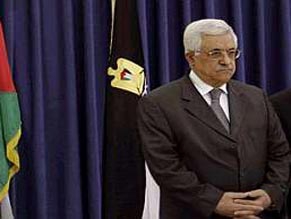|
World Jewish News

Photo by: AP.
|
Can Abbas make the tough decisions?
14.05.2010, Israel The Palestinian Authority’s recent “outsourcing” of its decision-making ability to the Arab League is a sign that PA President Mahmoud Abbas feels he does not have enough domestic legitimacy to make the tough decisions, government officials said on Thursday.
Over the past few weeks, officials in Jerusalem watched carefully as Abbas sought an Arab League green light to participate in the US-mediated proximity talks, noting that this is tantamount, to a certain degree at least, to the PA voluntarily yielding its own power to decide.
The officials said there was a sense in Israel that in a head-to-head showdown over the political process with Hamas, Abbas does not feel he has sufficient political legitimacy and therefore needs political cover from the Arab League.
It is not yet clear in Jerusalem whether the involvement of the Arab League in the internal Palestinian process will produce a tailwind that will enable the PA to make concessions on issues such as borders and refugees; or whether Abbas will use the Arab League to avoid making any difficult decisions, saying this body won’t allow him to do certain things or make certain choices.
Prime Minister Binyamin Netanyahu, meanwhile, convened his top ministers on Thursday to talk about the nascent US-mediated talks, about a week before US envoy George Mitchell is expected back in the region to continue mediating them. The meeting of the ministerial forum known as the septet came amid efforts by the government to look for the areas where there is the most common ground with the US, and then try to focus on those areas during the talks.
One thing that has emerged in recent days as an area of agreement with Washington, according to government sources, is the desire to view the indirect negotiations as a “corridor into direct talks,” and then get there as soon as possible.
Israeli officials said it was likely that the upcoming round of talks would still concentrate on procedural issues such as how to run the negotiations, and what to discuss first.
Israel and the PA are entering the talks, according to diplomatic officials, from different positions and with different expectations, with Israel wanting to get to direct talks as soon as possible and the Palestinians not sure if the sides are going to get to the direct negotiations at all.
While Israel has been pushing for the indirect talks to deal only with procedural, modality-related issues, the Palestinians want them to deal with the core issues of borders, refugees and Jerusalem. There is an expectation inside the government that Mitchell will look for a middle ground and deal with substance on some of the issues, but not all of them.
One Israeli source, while refusing to divulge which issues he thought would be discussed at a substantive level in the proximity talks, said it was clear that “the more difficult issues cannot be resolved without direct negotiations. If they want to have a peace agreement, they will have to negotiate with us directly,” he said of the PA.
By HERB KEINON
JPost.com
|
|
